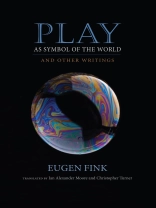Eugen Fink is considered one of the clearest interpreters of phenomenology and was the preferred conversational partner of Edmund Husserl and Martin Heidegger. In Play as Symbol of the World, Fink offers an original phenomenology of play as he attempts to understand the world through the experience of play. He affirms the philosophical significance of play, why it is more than idle amusement, and reflects on the movement from 'child’s play’ to 'cosmic play.’ Well-known for its nontechnical, literary style, this skillful translation by Ian Alexander Moore and Christopher Turner invites engagement with Fink’s philosophy of play and related writings on sports, festivals, and ancient cult practices.
Spis treści
Translators’ Introduction
Oasis of Happiness: Thoughts toward an Ontology of Play (1957)
Play as Symbol of the World (1960)
Chapter One: Play as a Philosophical Problem
Chapter Two: The Metaphysical Interpretation of Play
Chapter Three: The Interpretation of Play in Myth
Chapter Four: The Worldliness of Human Play
Play and Celebration (1975)
Additional Texts
Child’s Play (1959)
Play and Philosophy (1966)
The World-Significance of Play (1973)
Play and Cult (1972-1973?)
Notes
The Philosophical-Pedagogical Problem of Play (1954)
Sport Seminar (1961)
Play and Sport (1962)
Notes on 'Play and Philosophy’ (1966)
Notes on 'The World-Significance of Play’ (1973)
Appendices
1. The Layout of the Volume and Description of the Texts
2. German Editors’ Afterword
3. Bibliography of Fink’s Works Available in English
4. Secondary Literature on Fink in English
Notes
Index
O autorze
Eugen Fink (1905–1975) was a student and colleague of Edmund Husserl and Martin Heidegger. Spiel als Weltsymbol was published in 1960. This is the first English translation.
Ian Alexander Moore and Christopher Turner are Ph.D. students in Continental Philosophy at De Paul University. They are translators of Peter Trawny’s Freedom to Fail: Heidegger’s Anarchy.












